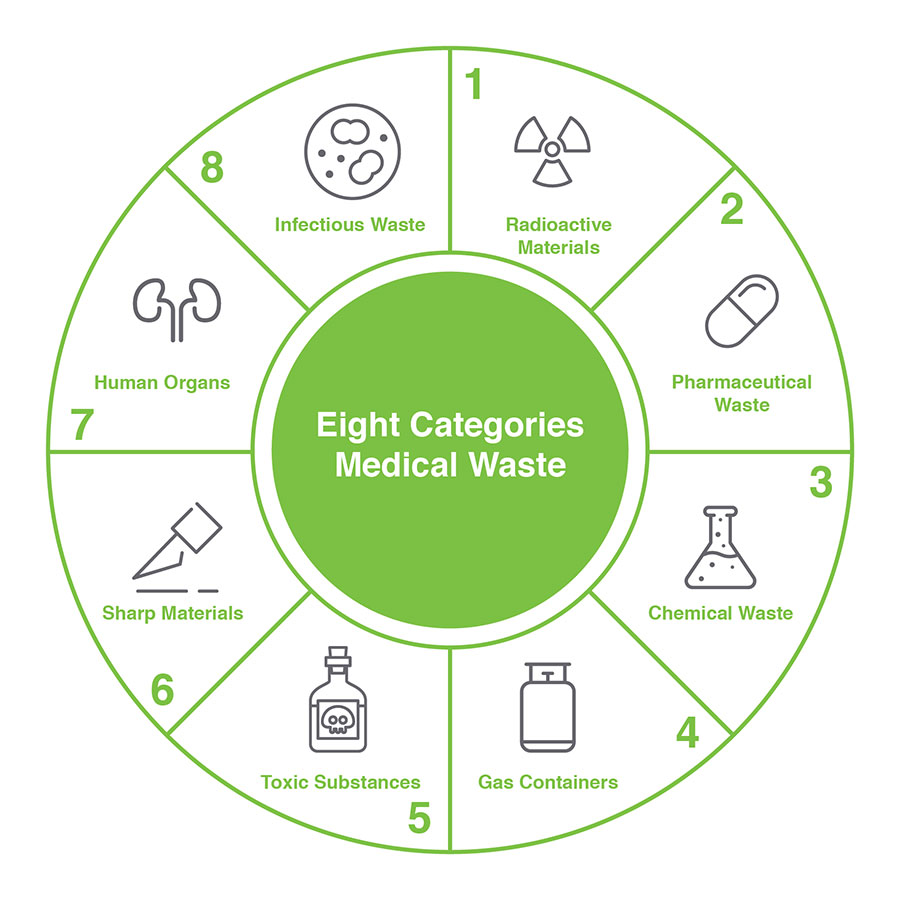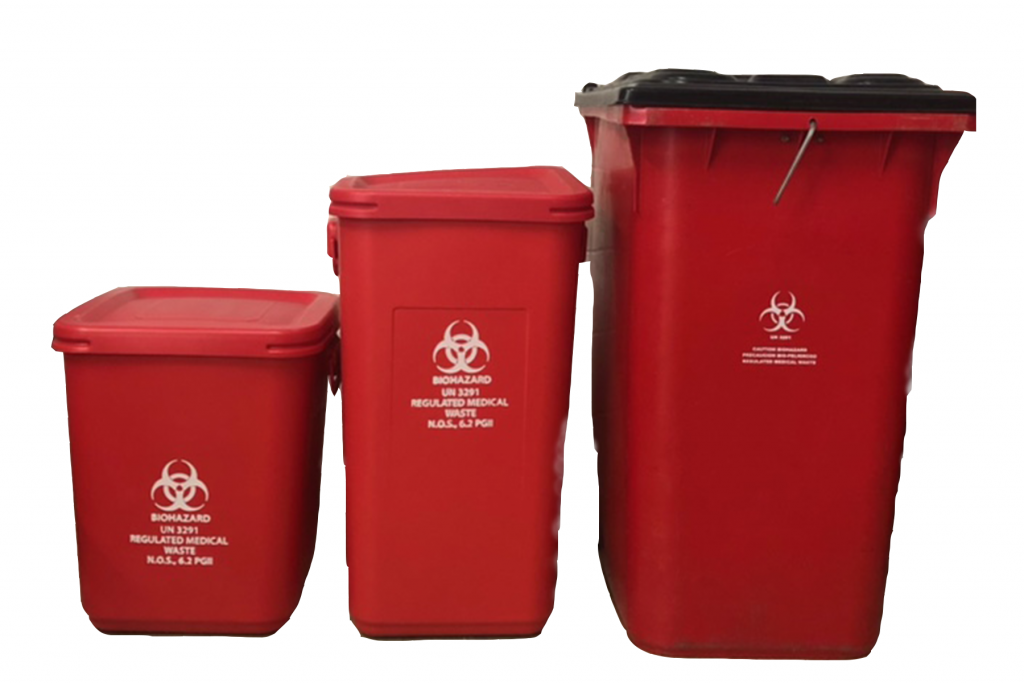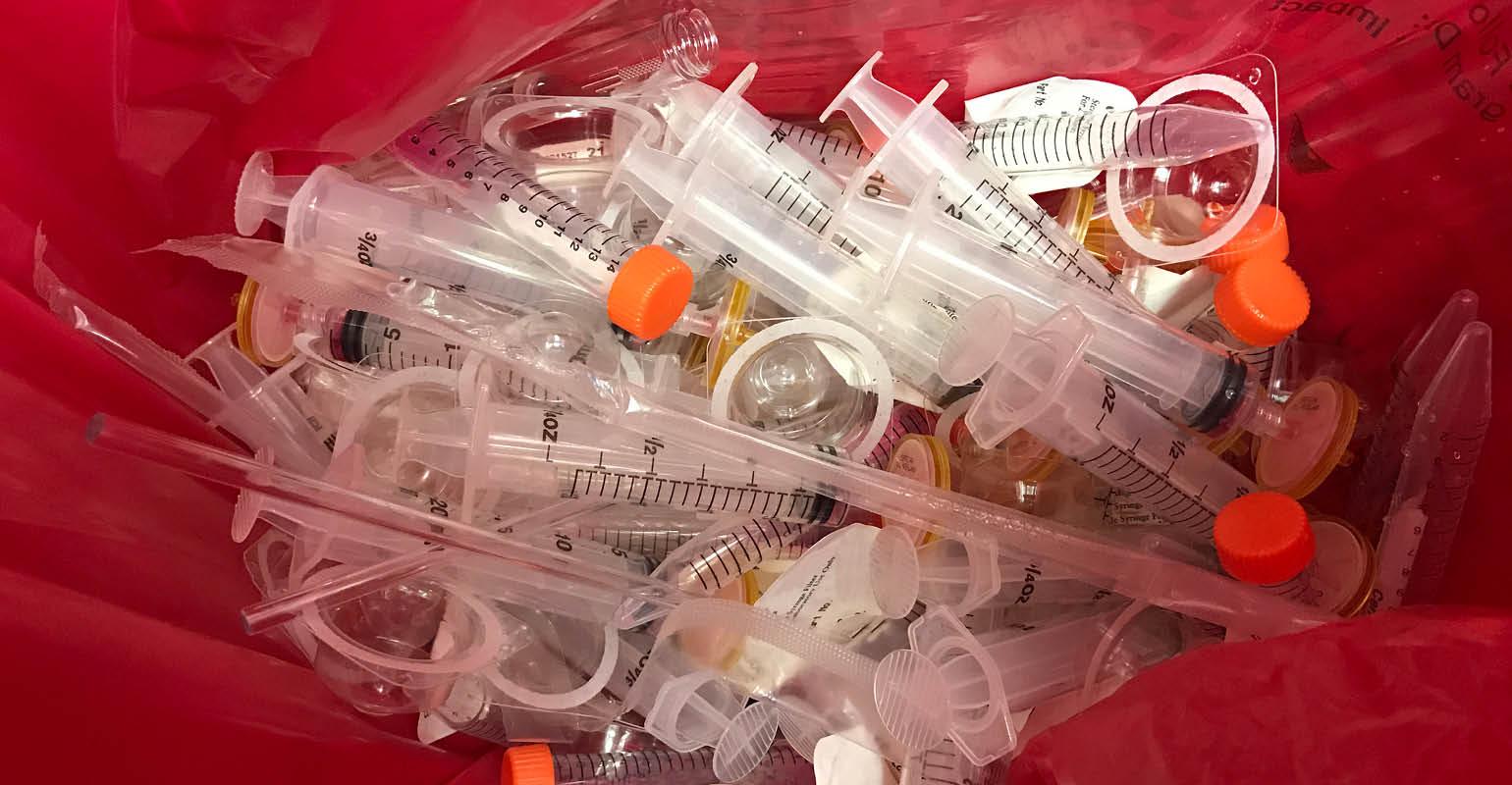Guardians of Tidiness: Resident Medical Waste Removal Service for Your Comfort
Wiki Article
Stay Ahead of Laws: Professional Suggestions on Medical Waste Disposal
In a world where the health care sector is frequently evolving, it is essential for clinical centers to remain in advance of regulations when it concerns the appropriate disposal of medical waste. With rigid standards and constant governing adjustments, it can be challenging to navigate the complexities of this process. However, with professional suggestions, centers can make certain conformity and mitigate risks connected with improper waste disposal. From recognizing the various groups of clinical waste to executing the ideal collection and segregation techniques, this discussion will supply workable tips and beneficial understandings to aid centers remain ahead of guidelines in the ever-changing landscape of clinical waste disposal.Comprehending Medical Waste Categories
Comprehending clinical waste classifications is vital for proper disposal and monitoring in healthcare centers. Medical waste describes any type of waste generated by health care activities that might position a risk to public health or the setting. It is vital to categorize clinical waste accurately to guarantee its safe handling, transport, treatment, and disposal.There are a number of categories of clinical waste that medical care facilities require to be familiar with. The most usual classifications include contagious waste, pathological waste, sharps waste, pharmaceutical waste, and chemical waste. Each category has specific guidelines and laws for its appropriate monitoring and disposal.
Pathological waste refers to human tissues, organs, or body parts that require unique handling and disposal. Drug waste consists of run out, extra, or polluted medications that need careful handling and disposal.
Staying Up-To-Date With Regulatory Adjustments
Remaining current with regulatory changes is important for health care facilities to guarantee compliance and correct monitoring of clinical waste disposal. medical waste removal service. With policies constantly advancing, it is essential for medical care centers to stay up-to-date to stay clear of fines, fines, and potential injury to the setting and public health and wellnessTo stay ahead of regulatory adjustments, medical care centers must establish a system for tracking and tracking updates. This can be done by signing up for regulative newsletters, going to workshops and conferences, and actively taking part in sector organizations. In addition, centers ought to designate a personnel participant or team in charge of staying educated and disseminating details to appropriate stakeholders.
Normal communication with governing agencies is likewise important. Health care centers should establish partnerships with local, state, and government firms to ensure they know any adjustments in regulations that may influence their waste management methods. This can be done via regular meetings, involvement in public remark periods, and positive interaction with governing agencies.
Moreover, healthcare centers must consider partnering with waste monitoring companies that concentrate on clinical waste disposal (medical waste disposal services with WasteX). These companies are commonly fluent in the most current regulations and can offer assistance and assistance to guarantee conformity
Implementing Correct Collection and Segregation Methods
To effectively take care of medical garbage disposal, healthcare centers need to establish correct collection and segregation techniques based on regulatory standards. Implementing these approaches ensures the safe handling and disposal of possibly unsafe products, shields the setting, and minimizes the risk of infections and injuries to healthcare workers and the general public.
Proper collection and segregation approaches entail using marked containers and labeling systems. Healthcare centers need to give plainly identified containers for various kinds of medical waste, such as sharps, contagious waste, pharmaceutical waste, and non-hazardous waste. These containers must be color-coded and clearly marked to prevent confusion and promote very easy recognition.
Furthermore, healthcare centers must train their staff on the proper treatments for collecting and setting apart medical waste. This includes enlightening them on the different kinds of waste, the ideal containers to utilize, and the significance of following regulations and standards. Regular training sessions and refresher course programs ought to be performed to make sure that personnel remain current on finest practices.
In addition, medical care facilities need to develop a system for regular collection and disposal of clinical waste. This might include partnering with certified waste monitoring business that specialize in clinical garbage disposal. These business will certainly guarantee that the accumulated waste is delivered and thrown away in compliance with governing requirements.
Selecting the Right Disposal Methods

Incineration is among one of the most efficient and typical approaches for throwing away certain sorts of medical waste, such as pathological waste and sharps. It includes the controlled combustion of waste at heats, decreasing it to ash. Nevertheless, incineration can release damaging contaminants into the air and contribute to air pollution.

Other disposal approaches include chemical therapy, microwave therapy, and landfilling. Chemical treatment entails using chemicals to reduce the effects of the waste and disinfect. Microwave therapy utilizes microwave power to warmth and decontaminate the waste. Landfilling includes burying the waste in an assigned landfill location (medical waste disposal services with WasteX). However, landfilling must be the last resource as a result you can try here of the potential risk of contamination to soil and groundwater.
Ensuring Compliance With Paperwork and Training
After meticulously thinking about the appropriate disposal methods for medical waste, healthcare centers must ensure compliance with regulations and minimize ecological influence by applying reliable documents and training treatments. This action is critical in maintaining a safe and lasting atmosphere for both healthcare workers and the basic public.
Training is similarly vital look at more info in guaranteeing compliance with guidelines. Healthcare employees who take care of medical waste must receive proper training on waste partition, managing, and disposal procedures. This training must cover subjects such as the proper usage of individual protective tools, identification of various kinds of waste, and the correct disposal techniques for each and every waste category. By providing detailed training, medical care facilities can empower their personnel to make educated decisions and lessen the threat of improper waste disposal.
Final Thought
In final thought, staying ahead of regulations in medical waste disposal is crucial for medical care centers. medical waste removal services. Comprehending the different categories of clinical waste, remaining updated with regulatory changes, implementing correct collection and partition techniques, selecting the suitable disposal methods, and guaranteeing compliance via paperwork and training are all vital steps. By following these standards, health care companies can efficiently handle and dispose of clinical waste in a responsible and safe mannerFrom understanding the various categories of clinical waste to implementing the appropriate collection and partition methods, this conversation will provide workable tips and beneficial insights to help centers stay in advance of guidelines in the ever-changing landscape of medical waste disposal. - medical waste disposal services with WasteX
The most common classifications consist of infectious waste, pathological waste, sharps waste, pharmaceutical waste, and chemical waste. Health care centers need to provide plainly classified containers for different types of medical waste, such as sharps, infectious waste, pharmaceutical waste, and non-hazardous waste. Healthcare facilities ought to establish a detailed system to videotape and track all facets of clinical waste disposal, consisting of kinds of waste created, amounts, and disposal approaches made use of. Medical care employees that take care of medical waste should receive appropriate training on waste segregation, dealing with, and disposal procedures.
Report this wiki page